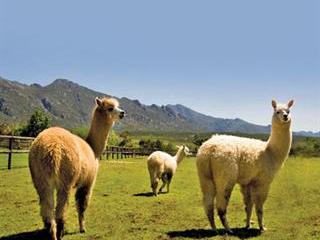Abrie de Wet from Enon just outside Caledon is the winner of this year’s Southern Cape canola competition, with a yield of 2,1t/ha and a gross income of R2 237/ha. In a year in which many farmers suffered huge losses due to isopoda, De Wet ascribes his success to good insect and weed management.
“One has to be alert at all times to prevent losses with canola,” he says. At the Grain SA meeting where the winners were announced, Charl van Rooyen of the Department of Agriculture in Caledon was very excited about high canola prices. “At the current price 1,4t/ha of canola can be compared with 2,8t/ha of malting barley, enabling canola to compete with other grains,” he said. The canola production year in the southern region of the Western Cape was marked by a long harvesting season and many producers suffered losses due to the November rains and pest damage.
Research by Dr Geoff Tribe from the Agricultural Research Centre at Roodebloem revealed that most of the damaged was due to isopoda. Cultivars that didn’t have to compete with grass infestation performed best, with precarious wet and dry weather making ryegrass control particularly difficult. Ryegrass’s resistance to imazamox, an active ingredient in certain herbicides, means a whole range of canola cultivars are no longer an option for production.
Van Rooyen advised farmers to ensure they use the right cultivar in the right area if they want to make a profit from canola. Clearfield-type cultivars perform best in areas where no imazamox resistance occurs. “These cultivars help suppress the grass seedbank before the grazing phase, and can therefore also be used to lengthen the grain phase by planting wheat after canola,” said Van Rooyen.
Triazine-tolerant cultivars will be the best choice for producers who experience problems with grasses that have become resistant to selective herbicides such as dims and fops. The triazine has the added advantage of also working on some broadleaf weeds. Conventional types of canola would be best suited for high-potential camps where there are no signs of herbicide resistance, but it’s still important to adjust the cultivar to the climatic conditions of the camp. The conventional types that performed best in the southern region of the Western Cape in 2007 was first Muster, then Hyola 61 and then Opal. Thunder, Cobbler and ATR Stubby (in that order) were the best triazine-resistant cultivars. Of the Clearfield-types the best performers were 44Y77, 44C73 and Rocket CL. – Glenneis Erasmus









